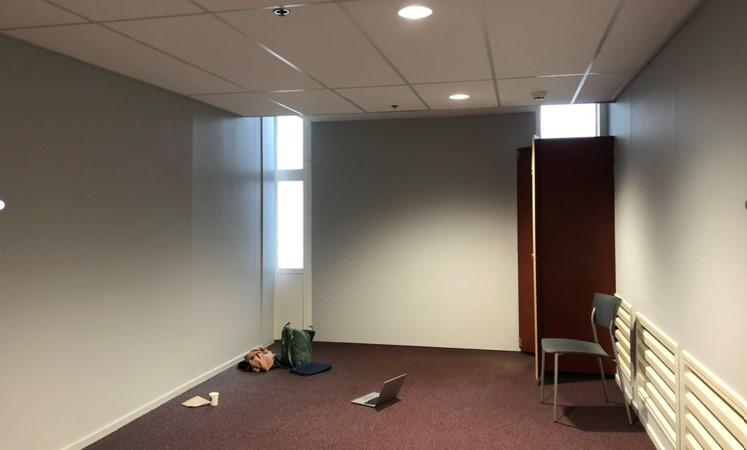A neurodivergent-friendly campus?
Navigating university as a neurodivergent student

Last week I lay on the carpet in a forgotten corner of the Ruppert building and felt at peace. I had discovered the perfect working spot.
I find studying and working in libraries difficult. The environment makes me feel overwhelmed, stressed, and on edge. The low-level noise, the whispering, the people everywhere… It’s all just too much. I struggle to focus and I leave with a massive headache.
Others seem to adapt effortlessly. This makes me feel weak and deficient. I never considered that the space might just not be designed in a way that suited me.
I’ve always thought I was weird and different when I’m just neurodivergent. Neurodiversity, a term coined in the late ’90s by the sociologist Judy Singer, refers to a wide range of neurological functioning within society. A neurodivergent person is one whose neurological processes differ from the socially constructed “neurotypical” norm (see here for more information).
What does that look like for me? I mainly struggle with sensory issues, sky-high anxiety, lack of self-confidence, and trouble structuring my ideas (my thoughts go in a thousand directions at once). I’m too literal for some, too imaginative for others. I am easily overwhelmed and constantly feel like I’m failing at everything. So I take the fact that I can’t “do” libraries for granted.
But what is the basic assumption behind the present library setup? That the prevailing campus design works for everyone. Neurodiversity is not taken into account. The current situation begs the following question: How many other students across the city are finding ways to cope within a system that wasn’t built with them in mind?
Though it’s amusing to imagine a building full of students hiding in backwater hallways and stairwells, this is hardly the future. Instead, what if campus design reflected the diversity of neurological experiences present in society, instead of catering to a socially constructed norm? What if university campuses served and accommodated every student’s needs?
On my ideal campus, students would have access to a place, other than their home, where they could be alone and could focus. These spaces would be compact, mostly soundproof, and provided with windows that opened. (Fresh air! It’s always too hot in libraries.) They would enable everyone to study in a way that worked for them.
I want to investigate further, as so much is beyond the scope of this article. Predictably, I have about a hundred links saved and don’t know where to begin… But if you’re neurodivergent, I would love to hear from you. How do you develop strategies that make the campus work for you, and make university life more manageable? Please email me at a.c.ochsenmeier@students.uu.nl